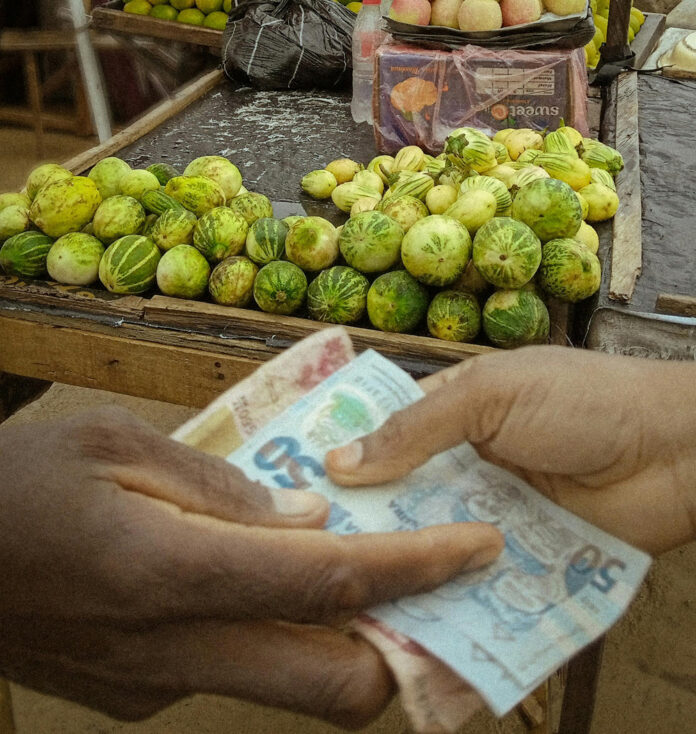The African continent, home to over 1.4 billion people, is a region of immense potential and opportunity. With its abundant natural resources, young and growing population, and increasing rates of urbanization, Africa represents one of the world’s most dynamic economic zones. However, despite these advantages, Africa’s economic potential is often hampered by fragmentation. The continent’s countries, each with distinct trade rules, regulations, and currencies, remain largely disjointed, which limits the scale and speed of its development. A key solution to this challenge is the creation of a single integrated market across Africa—a goal that has been pursued through initiatives like the African Continental Free Trade Area (AfCFTA).
The creation of a single, unified African market is not only a strategic advantage for the continent itself but also a crucial area of interest for Western nations. The West has long maintained substantial economic, political, and cultural ties with Africa. Helping to build a single integrated market across the continent is in the West’s best interests, offering opportunities for growth, stability, and cooperation that can foster stronger, more balanced relations between Africa and Western countries.
The Challenges of Fragmentation
Africa’s economic fragmentation has been a longstanding issue. Despite having numerous economic blocs, such as the Economic Community of West African States (ECOWAS), the East African Community (EAC), and the Southern African Development Community (SADC), Africa’s markets remain segmented. Trade barriers such as tariffs, complex regulations, and differences in infrastructure have made it difficult for businesses to operate across borders efficiently. As a result, intra-Africa trade remains significantly lower than other regions in the world. According to the African Development Bank, intra-African trade stands at about 16% of the continent’s total trade, compared to 69% in Europe and 59% in Asia.
Moreover, Africa’s reliance on commodity exports, often to Western markets, has left the continent vulnerable to fluctuations in global demand and prices. This economic dependency makes African countries less resilient and hampers their capacity for sustainable growth. Overcoming fragmentation and creating a unified market would allow for more diversified economies, improved infrastructure, and enhanced intra-continental trade, driving greater economic growth and stability.
The Role of the African Continental Free Trade Area (AfCFTA)
The AfCFTA, which officially launched in 2021, is a pivotal initiative aimed at creating a single, integrated market for goods and services across Africa. By eliminating tariffs on 90% of goods, simplifying rules of origin, and reducing non-tariff barriers, the AfCFTA is designed to increase intra-African trade and promote economic cooperation among African nations. In addition to boosting trade, the AfCFTA has the potential to create more jobs, improve industrialization, and foster innovation across the continent. If fully realized, it could increase Africa’s GDP by over $450 billion and create a market of over 1.4 billion consumers.
For the West, supporting the AfCFTA aligns with its interests in several key ways. First, the West can benefit from a more stable and prosperous Africa. Economic integration across Africa will foster regional stability by reducing conflicts over trade routes and markets. In turn, stability in Africa has long-term implications for security, as political and economic crises in the continent can spill over into global concerns. Moreover, a stable and growing African economy would reduce the need for aid and promote more sustainable development, benefiting both African nations and their international partners.
Second, the West stands to gain economically from a more integrated African market. Western companies looking to invest in Africa will find a larger, unified consumer base and fewer barriers to entry. This could create new business opportunities in sectors such as manufacturing, telecommunications, renewable energy, and finance. Moreover, the increased demand for goods and services within Africa could present new markets for Western products, from high-tech equipment to consumer goods, further integrating the continent into global supply chains.
Strategic Importance of Africa for the West
Africa’s geopolitical importance has grown significantly over the last decade. The continent is strategically located, acting as a gateway to both Europe and the Middle East, while also providing critical access to the Indian Ocean and the South Atlantic. With China increasingly asserting its presence on the continent through investments, infrastructure projects, and political alliances, there is growing concern in the West about Africa’s potential to be swayed by Chinese influence. As a result, strengthening economic ties with African nations has become a key priority for the West.
A single integrated African market would give the West greater leverage in Africa by creating a platform for more balanced and fair trade relations. It would open avenues for collaboration in sectors such as clean energy, infrastructure development, and technology, where the West has a competitive edge. Additionally, it would create an environment in which African nations could negotiate more effectively with Western powers, ensuring that trade agreements benefit both sides.
Furthermore, an integrated African market presents a strategic advantage in terms of security. A prosperous and stable Africa is far less likely to face the types of political instability, insurgency, and terrorism that have plagued certain parts of the continent in recent years. The West has an interest in helping to secure Africa’s future not only because of economic ties but also for broader geopolitical stability.
Addressing the Challenges
While the AfCFTA is an important step in the right direction, the path to full integration is not without challenges. One of the main obstacles is infrastructure. Africa’s transportation and logistics networks are still underdeveloped, which makes cross-border trade difficult and expensive. The West can play a crucial role by supporting Africa’s infrastructure development through investment and partnerships. This could include financing roads, railways, and ports, as well as promoting digital infrastructure to facilitate the movement of goods and services.
Another critical area is governance and policy harmonization. For the AfCFTA to function effectively, African countries need to adopt common policies, reduce bureaucratic red tape, and ensure transparency in trade and regulatory practices. The West can help support this process by sharing expertise and providing technical assistance in areas such as regulatory reform and capacity-building for African institutions.
Lastly, political will remains a crucial factor in the success of the AfCFTA. African leaders must continue to prioritize regional integration and make the necessary political compromises to ensure the success of the project. The West can encourage these efforts by offering diplomatic support and creating incentives for African countries to fulfill their commitments.
Conclusion
Creating a single integrated market across Africa is not only a matter of continental importance but is also aligned with the strategic and economic interests of the West. The AfCFTA, if successfully implemented, will transform Africa’s economic landscape, enhancing trade, fostering innovation, and improving governance across the continent. For the West, helping to facilitate Africa’s integration into a unified market will ensure long-term stability, open new economic opportunities, and promote more balanced, mutually beneficial relations. By working together, Africa and the West can forge a future that benefits both regions and contributes to global prosperity











